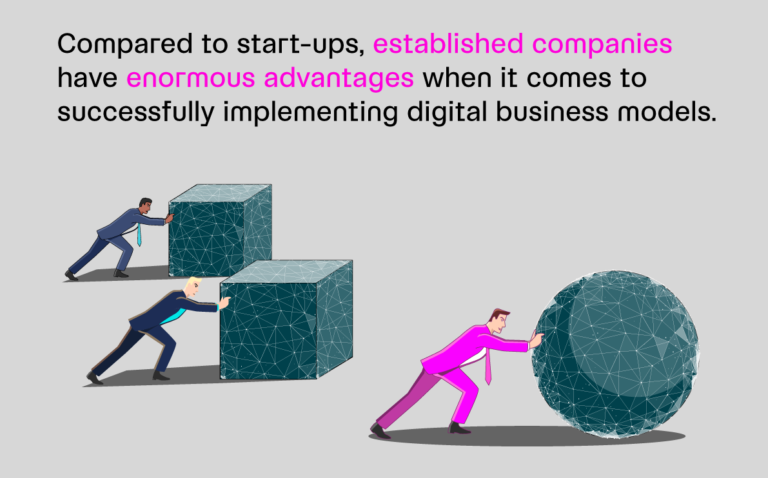How To Evaluate Your StartUps’ Venture Capital Readiness
In today’s day and age, it’s important to remember that almost all startups require some sort of startup capital, right? In some cases, startups are funded by venture capitalists who are willing to invest money to put a business on the high growth track.
But how exactly do you know when and if your company is ready for venture capital? What does that even mean? Is venture capital funding really the right way to go for every company? Just because you want to take on venture capital does not mean you should or can. Even with an amazing profitable startup.
Take a look at our checklist to determine if your company is ready to take on venture capital or if you even have or want to.
What Does Venture Capital Mean For Your Business?
Taking on venture capital means that you now have new players who will have a say in your company. With their network and financial resources, you’ll be able to position your new venture for growth. However, with their stake comes their influence as well. You might be required to take more of their opinions into consideration.
The Upside
Right from the onset, having a fresh influx of cash is always a benefit. From there, you’ll also gain some invaluable experience from experts, ultimately allowing you to expand your network, acquire new customers/clients, and grow your startup faster Even to this day and age digital product development requires substantial capital and go-to-market expertise – this is how you can get it.
The Downside
For some startups, taking on venture capital is essentially the same thing as relinquishing control over your business. You’ll be required to provide reports to investors to prove that their money is being well-spent. Your VC will want to have a say on certain spending and strategic decisions. Furthermore, cash is addictive, there’s a chance that you burn through cash far more quickly due to a desire to provide quick wins.
The Key Questions
Before taking on venture capital, it’s important to ask yourself some key questions:
Do I Really Need Venture Capital?
First, determine if you can fund your startup on your own. Are you looking for the rapid, world-dominating unicorn status? Or are you looking for that boot-strapped profitability approach? Taking on cash later in your company’s life, when you already have some traction, can have a significant positive impact on the valuation of your company.
Is My Business Model VC Friendly?
Remember, venture capitalists need to pay returns to their shareholders as well. In regards to the risk they are taking on, most VCs want to see a potential return on their investment of 10x some even a 100x. Ask yourself if the market you are playing in can provide these kinds of valuations.
What Stage Is My Business In?
Are you still in the ideation phase or do you already have some traction with your first MVP? Is your idea based on a special insight that no one has but you? Can you make your USP clear to the market? Depending on the stage of your company, there are different VCs to approach.
Do I Have The Right Team In Place?
In the early stages of a company it is often difficult to properly evaluate the potential of an idea. But with a world class founding team in place, VC’s more often than not bet on the rider not the horse.
How Much Money Do I Need?
This part is always tricky, as the pretty financial models you and your team are building are nothing but a wild guess and they are never true. Nonetheless, give it a try, make it plausible. Try to make sure you don’t have to raise another round in 6 months again.
Do you have your documents ready?
When approaching a VC please have all your documents ready, don’t make them up on the fly. This is a small set of documents to prepare and please do not write a full on business plan of 45+ pages – no one will read it, ever. Focus on these instead:
- Elevator Pitch
- One Pager
- Pitch Deck
- Financial Model (yes we know what we wrote about them earlier…)
So, what now?
Remember, there’s no 100% rule for determining if you and your business are ready for venture capital funding. Essentially, being VC-ready comes down to checking off the boxes above and truly answering the questions: Do you want and do you really need it? Know your business, know your product, know your market, and know your margins.
Once you accomplish all of that, you’ll have your answer. You can also check this list from our friends at Speedinvest X – they published their scorecard for marketplace businesses. If you are still unsure, we are happy to jump on a call and share our opinion.
At Venture Leap, we help entrepreneurial teams build and launch their digital products. Get in touch or book a free session below if you want to know how can take your idea to the next step and develop a minimum viable product that works.

Philipp Noack –
Co-Founder Venture Leap
Let’s talk about your project!
At Venture Leap, we help entrepreneurs realize their vision – Let’s chat about how you can go from an idea to a marketable MVP in 3 months!




